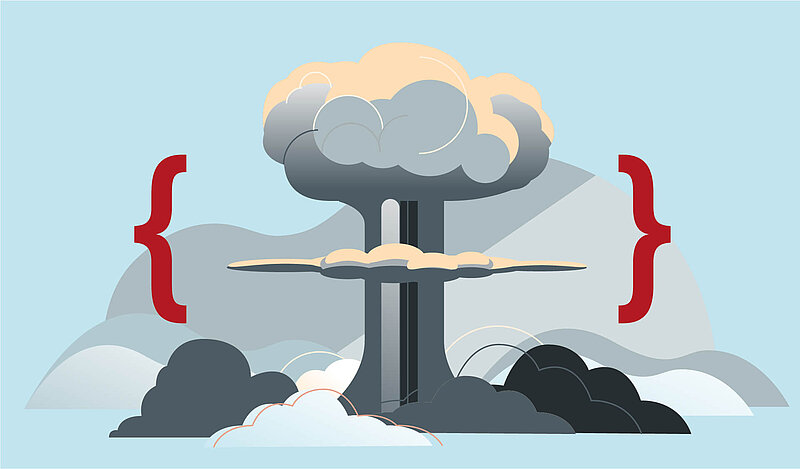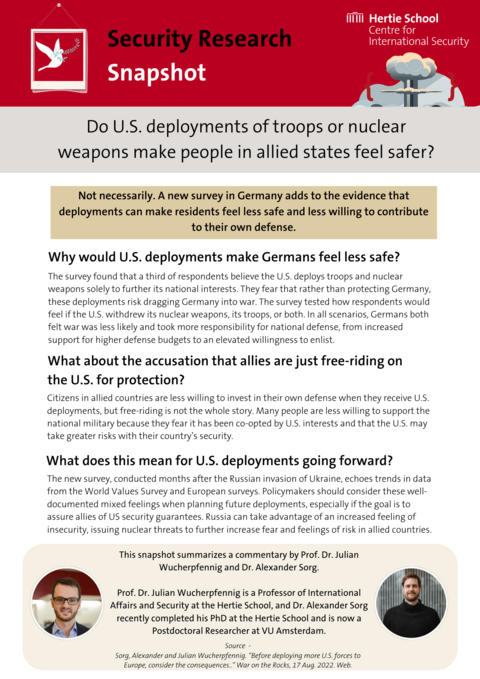
Nuclear weapons have made an unlikely return to the top of the agenda of world politics. Most major nuclear powers have recently begun to invest in new capabilities or the modernization of their arsenals. At the same time, attempts to curb nuclear proliferation have had a limited effect at best. With old rules eroding and new challenges emerging, a new or “second” nuclear age, marked by more actors and less stability, is taking shape. Europe is particularly affected by these developments, as exemplified by the demise of the Intermediate-Range Nuclear Forces (INF) treaty.
Our research at the Centre for International Security focuses on developing a uniquely European perspective for the ongoing scholarly debates in the nuclear field.
We address the following key challenges:
- Under what circumstances is nuclear escalation (advertent or inadvertent) in the Euro-Atlantic theatre a realistic possibility?
- Do NATO’s nuclear sharing arrangements and its deterrence posture require an update?
- How do assurance and deterrence measures relate in heterogeneous alliances?
- What internal fault lines are present in NATO member states concerning nuclear weapons?
- What role can Europe assume in safeguarding existing nuclear arms control agreements or in formulating new ones?
Security Research Snapshot
Do U.S. deployments of troops or nuclear weapons make people in allied states feel safer?
Read our experts' view in our latest research snapshot.


